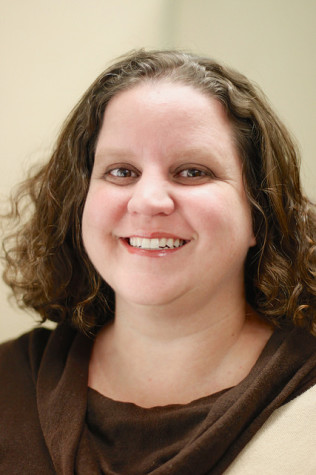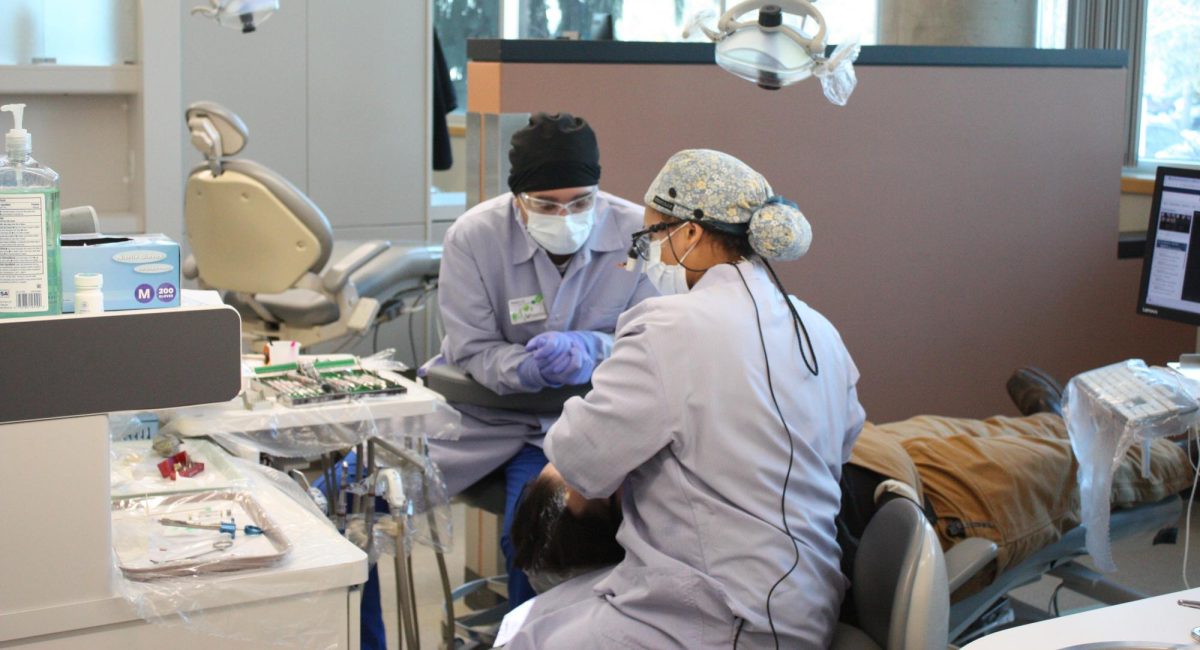NPR politics reporter was passing through White House security gate on 9/11
Journalist recalls meeting Rosa Parks, Johnny Cash
May 23, 2013

NPR political correspondent Don Gonyea poses with a fan at his May 9 presentation at the Bing Crosby Theater.
“Sorry I’m late. I was supposed to be here 11 years ago,” said Don Gonyea, NPR political correspondent, at the Bing Crosby Theater in downtown Spokane on May 9.
Gonyea was originally scheduled to speak in Spokane on September 13, 2001. On September 11, 2001, he was at the White House, which was his assigned beat as a political reporter. He never did make it to Spokane, until now.
“We try to bring somebody once every year and a half or so from NPR,” said Kathy Sackett, Spokane Public Radio’s underwriting and special events director. “When we were searching for someone, we thought that Don Gonyea would be a very good choice since politics is so important and fascinating to people right now.”
Gonyea spoke without notes for about 45 minutes on his experience on 9/11 before moving on to other experiences in journalism.
On the morning of 9/11, Gonyea walked his daughters, ages 9 and 4, to school. But a few minutes before 9 a.m., a coworker called Gonyea to tell him that a plane had just hit one of the twin towers.
“And while I was on the phone with him, the second plane hit,” said Gonyea. “Obviously, the air goes out of your conversation, and everybody knows what it is [now].” He took a cab to the White House.
Gonyea was preparing to go through the metal detector when someone inside on the White House lawn shouted that the Pentagon had been hit. Gonyea said that he realized that the White House was also likely to be a target.
The Secret Service agents knew it too. “All of a sudden, these friendly, uniform division Secret Service guys you see every day, they’ve got weapons out like you’ve never seen before,” said Gonyea. “Not just their sidearms, but rifles and what looked like semiautomatic weapons. … And they start pushing us all out.”
“The single strangest moment, to me, happened when I was kneeling in the middle of Pennsylvania Avenue [recording ambient sound],” said Gonyea. “I looked up, and I was surrounded by people in white lab coats and tall paper hats. There were dozens of them. … I felt like I was in some weird Monty Python sketch.”
As it turned out, there had been a Congressional barbecue to be held on the South Lawn that evening. This group was the staff that had been preparing food for the barbecue.
“Every political story I’ve done since has sort of grown out of that day,” Gonyea said.
The sixth of nine children, Gonyea was raised in Michigan. He earned degrees in advertising and broadcasting from Michigan State University and has worked as a journalist for 32 years.
Gonyea’s favorite career moment came early on. In 1981, he covered a local fair where Johnny Cash was to perform. When Cash walked by, Gonyea started asking him questions. Cash took his time and answered all Gonyea’s questions.
“He was way nicer than he needed to be. He was Johnny Cash. I was nobody,” Gonyea said. He did get Cash’s autograph—one of his two favorite autographs, he said—and this interview boosted his professional confidence so much, according to Gonyea, that he still remembers it as a critical point in his journalism career.
During the question and answer period after his presentation, Gonyea was asked, “What’s your other favorite autograph?” He said, “Rosa Parks.”
Someone asked, “How can the Republican party reinvent itself?” Gonyea said, among other things, “Every year voters age out, die, and they’re mostly white and are replaced by an 18-year-old who’s far less likely to be a straight white male.”
“How do you cover politics and not become a cynic?” asked another audience member. Gonyea said he focuses on the positive and remembers the things he loves about being a journalist.








